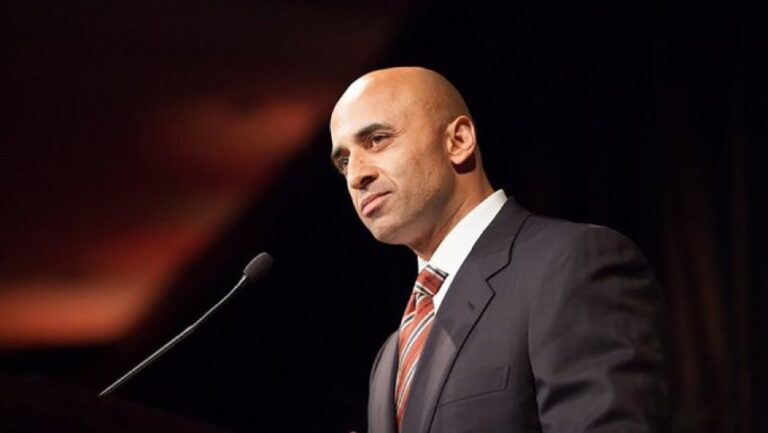 By Rabbi Yair Hoffman for the Five Towns Jewish Times
By Rabbi Yair Hoffman for the Five Towns Jewish Times
It seems to be developing into the mother of all halachic controversies.
It began in 2014, when Rabbi Simcha Krauss admirably launched an international beis din to deal with the problem of agunos. Rav Krauss is an eminent talmid chacham and, initially, he sought the approval of Rav Zalman Nechemiah Goldberg, one of the leading poskim of the generation.
But then Rav Goldberg pulled out, after a fundamental disagreement with the methods that the beis din was using. Rav Hershel Schachter, a universally recognized expert in halachah, was shown a few of the beis din’s innovative halachic methods and penned a letter against them. Now 100 rabbis, none of them known for advanced expertise in halachah, have signed a letter denouncing Rav Schachter.
Rav Schachter’s letter is reproduced in English translation below:
To my brethren, friends, and students of rabbis in each and every city:
A number of months ago an international beis din was established to deal with matters concerning agunos. Approximately two months ago, I reviewed a 23-page response written in Hebrew on the matter of agency for the writing of a Get against the will of the husband. It was written by one of the members of that beis din. It is error-laden from beginning to end. Also, another response written in English, four pages in length, was brought before me to permit an agunah based on the Ritva’s well-known view regarding a relative or invalid witness.
This is neither the path, nor the city (see Melachim II 6:19).
The commandment against adultery is not like the laws of mourning that we can say, the halachah is in accordance with the lenient view, where one may always be lenient even in any doubt. Our sages have ruled that in any place where there is chillul Hashem, we do not stand upon the honor due to a rabbi.
I personally feel an obligation to protest the matter, for otherwise the public will say that from the fact that the rabbis are silent, we can infer that they are in favor of it. Students will see this and establish it as halachah for generations.
It is a matter of great chutzpah that three rabbis have joined this beis din. For such weighty matters, to permit a woman without a Get, they would bring before the Gaon Rav Yitzchok Elchonon [Spector]. After him they were brought before HaGaon Rav Chaim Ozer [Grodzinsky]. In our generation, they were brought before HaGaon Rav Moshe Feinstein. They were recognized as truly the greatest of the generation. It is forbidden for general rabbis to involve themselves in matters such as this. For one who is not fully proficient in matters of Gittin and Kiddushin should not have dealings with them. In our generation, these matters are presented before extraordinary scholars who are well-versed in these matters and who have shimush with gedolim and who have a mesorah in what matters we may be lenient and in what matters not to be.
I have come here to encourage my friends and students not to rely upon any halachic ruling that emanates from the aforementioned beis din, for they are not to be relied upon. I have heard that one of the three rabbis has resigned from the beis din. I have requested that the other two also remove their hand from this terrible business from now on. They should inform the masses that no one may rely upon the leniencies that they have already signed upon, since their entire path is not in accordance with halachah.
[Rav] Tzvi Schachter, Tammuz 5775
The letter received the following addenda by other prominent rabbis across the country:
“I too agree with the above-mentioned protest with full force.”
—[Rav] Gedaliah Dov Schwartz, 21 Tammuz 5775
“It is extraneous to add that there is no ruling and no judge here, rather the nonsense of fools who have appointed themselves authorities.”
—[Rav] Nota Tzvi Greenblatt, Memphis, 22 Tammuz 5775
“The words of the above giants are clear in law and in practice, and I also join in their objection.”
—[Rav] Avrohom Michael Union, 26 Tammuz 5775
“I too join in objecting to this brazen breach.”
—[Rav] Menachem Mendel Senderovitz, 3 Av 5775
The IBD And Halachah
The IBD (international beis din) rabbis are opting for a rather controversial method of relieving the problem of “chained” wives. They are granting “Jewish annulments” of the original marriage.
The issue, however, is mired in controversy, where leading rabbis are aghast at both the ease and the extent of the annulments being granted. Yet there are now, believe it or not, hundreds, if not thousands, of women walking around with these “Jewish annulments.” Some of the rabbis who grant these annulments do so quietly, and warn the woman not to reveal the actual basis for her “ability to remarry.”
The Rationale
The rationale for the granting of such annulments is predicated upon the idea that the original marriage was conducted in error. The argument is that the woman was misled and was entirely unaware of crucial details about her husband-to-be. “Had she known about her husband’s issues,” the argument goes, “she would never have gone forward with the marriage.”
This is known as the argument of “mekach ta’us—an erroneous contract,” or having contracted the marriage erroneously, a concept discussed in a Mishnah in tractate Kesubos (7:8) and further elaborated upon in the Gemara (Kesubos 73b).
Yet what is not told to the masses is that the criteria for annulment of a marriage are far more stringent than for any regular business transaction. Even in previous times, to annul such a marriage two elements were required—a mum gadol, a serious blemish, in the husband, and something else called an “umdana d’muchach, a thoroughly compelling indication” that no woman would wish to live with such an individual (see Beis HaLevi Vol. III #3 for a discussion of this point).
Clearly, this blows out of the water most claims to having contracted the marriage erroneously. The Gemara further explains that even though, in theory, the specific erroneous contractual issues brought up in the Gemara would annul the obligation to pay the kesubah, a get would still be required, because of either a rabbinic stringency or on account of doubt regarding a biblical requirement.
What the IBD seems to be doing is creating both such elements in the fact that the husband is refusing the granting of a divorce. But, like it or not, the fact is that society as a whole never encouraged easy, no-fault divorce until recent times. Within Jewish society and where the normative application of Jewish law was employed, divorces were not simply handed out whenever a woman just wanted out of a marriage. Thus, the use of this new mum gadol and umdana d’muchach is somewhat dubious in the eyes of numerous poskim.
Two Limiting Factors
Furthermore, the argument of mekach ta’us, even to the advocates of liberal use of these annulments, is further limited by two factors:
1. If the wife knew about the husband’s issue and willingly accepted it, then she may not avail herself of the argument.
2. There is a rationale presented by Rabbi Shimon ben Lakish that the Talmud itself accepts (See Bava Kamma 110b) which severely limits the argument of “I would never have gone forward with the marriage.”
As far as the first factor, if the wife continued living with the husband after discovering the husband’s issue, it would be considered as tantamount to acceptance (see Rambam, Laws of Sale 15:3).
We will elaborate upon this second limitation later in this essay, but at this point it must be stated that the opinions of the major contemporary poskim can be divided into three general categories.
Three Positions Among The Poskim
Category A. Those poskim who entirely forbid any form of annulment in modern times, even when there is makom igun—where the woman would otherwise be unable to remarry. These include Dayan Yitzchok Weiss, zt’l (Minchas Yitzchok); Dayan Yechezkel Roth, shlita; Rav Yitzchok Isaac Liebes (Beis Avi III #135); Rav Chaim Berlin, zt’l; and Rav Yoseph Eliyahu Henkin, zt’l. Indeed, Dayan Roth is so strongly supportive of this position, that he states that there is a possibility of mamzeirus when an annulment was made and the woman subsequently remarried and had children. The halachic poskim this author consulted from both factions of Satmar (the Reb Zalman faction and the Reb Aharon faction) in the United States are also of the opinion that any form of annulment is completely forbidden and would produce mamzeirim.
There are also poskim who, it seems, fit into category A by the way they handle aspects of questions that are related to the question. Rav Yaakov Breisch (Chelkas Yaakov III #114) fits into this category as well.
Category B. Those poskim who permit the annulment of a Jewish marriage under certain circumstances and only in combination with other mitigating halachic factors. The latter point is crucial. Category B poskim only allow an annulment if they can combine the “mekach ta’us, erroneous contract” argument with another mitigating factor, or even several other factors.
This category includes Rav Elyashiv (see Yeshurun Vol. XIX pp. 518-520); Rav Tzvi Pesach Frank (Har Tzvi EH #204); Rav Ovadia Yosef (Yabia Omer Vol. VII #7); and Rav Chaim Ozer Grodzinsky, zt’l.
Category C. Those poskim who permit and would grant an annulment solely on the basis of the notion of mekach ta’us, an erroneous contract. These include Rav Moshe Feinstein, zt’l (see, for example, Igros Moshe EH IV #13); Rav Avrohom Aharon Yudelevitz; and possibly Rav Yaakov Yechiel Weinberg, zt’l.
The New Reality
An analysis of post-Talmudic responsa will show that, in the past, mekach ta’us was enough of a rationale by itself to annul a marriage, according to many poskim. Nonetheless, on account of various social and economic factors, the view of most contemporary poskim is that this heter, or leniency, must be discontinued. What factors, nowadays, have caused the change in mekach ta’us? The Netziv presents the idea that if there is significant financial benefit for the woman in being married, as was the case in the Netziv’s time, then by no means may the marriage be annulled through the mechanism of mekach ta’us—erroneous transaction.
What are other additional factors that can possibly be added to the issue of mekach ta’us? They range from a negation in the validity of one of the original witnesses, a possibility that the husband was born with a congenital abnormality that affects his ability to sire progeny, or a number of other factors.
Recent Cases
There have been a number of cases in recent years where one posek issued a ruling of annulment only to find that a greater gadol overturned the ruling and demanded that the first posek retract his leniency. Many of these cases, apparently, involve a Category B posek who disagrees with the ability to follow the methodology of a Category C posek. In one particular case, after the original posek retracted the lenient ruling, the get was ultimately issued—but only after the husband successfully extorted vast sums of money from the wife’s family.
The existence of such extortion within our midst, the ever-growing divorce rate within our community, the dangerous development of the proliferation of wholesale annulments, and the events of the past few months within the Torah community require some serious rethinking as to how we should proceed. Inaction has caused some serious repercussions.
The repercussions lie in three main areas: Firstly, the pain and suffering on the part of a growing number of agunos. Secondly, it leads to an acceptance of out-and-out extortion, and thus fosters an unfortunate moral decline within our communities. Thirdly, and perhaps the repercussion with the most lasting significance, is the proliferation of mamzerim within Klal Yisrael, Hashem yerachem.
Rav Herschel Schachter, a leading American posek, in his letter reproduced above, states that the permission to undo a marriage cannot be unilaterally exercised by rabbis who are neither the leading scholars of the generation nor poskim fully versed in the laws of gittin and kiddushin.
It is also well known that Rav Schachter Shlita has been a strong advocate for agunos for decades. His concern here for illegitimate annulments can best be understood with a parable. In the United States, there are numerous illegal immigrants who are extremely eager to receive immigration papers. Unfortunately, there are lawyers who are providing these immigrants with papers. The problem is that the United States government is not recognizing these papers.
Conclusion
Though well-meaning, the actions of the IBD can cause a serious rift within Judaism in that most halachic authorities view such annulments as invalid. Any future offspring of those granted these annulments would be veritable pariahs in Orthodox Jewish society. Any honest evaluation of what is transpiring here would yield the undeniable conclusion that the IBD is sentencing the descendants of these women to a pariah status within Klal Yisrael.
Clearly some other solution is needed.
The author can be reached at [email protected].











14 Responses
The solution is simple. Every husband will prepare a get at the same time as the kesuba that will be deposited with a bais din and held onto until a time the bais din will determine to serve it on the wife.
to”NY100K”
dont u get it?
leave the halachic implementations to the PROS.
you are not qualified and your opinions are worthless too.
What Krauss attempted was not the first attempt. He merely replicated what Rackman attempted over 15 years ago. It appropriately failed then and failed now again.
Rav Zalman Nechemiah Goldberg didn’t “pull out”. Rav Goldberg wrote a public letter saying it was lie that he ever supported Krauss’ enterprise in the first place. And he denounced it in no uncertain terms.
Any eishes ish who so-called remarries based on any of these false annulments will be producing mamzeirim. Most of those who go around calling themselves agunahs are in fact not that. As R. Hoffman said, a wife simply wanting a divorce does not mean she’s halachicly entitled to a divorce. A woman who wants a divorce she’s not halachicly entitled to is not an agunah despite any PR by ORA and other such anti-halachic entities.
A affair would fall into makach toais and umda dimukach?
Questionable #6: No.
“ORA and other such anti-halachic entities”
Rav Schachter is the posek for ORA. I suggest that he may know more halachah than any of us commenting here.
To BABAKAMA:
First of all there is no need for insults, and you may disagree, but that doesn’t make my opinion worthless.
As far as halacha goes, the solution I propose would be acceptable. This same method is used for a heter maya rabbanim. The get is given with the husband’s will. There are various reasons why his later changing his mind isn’t valid, which this forum not being the appropriate place to discuss.
Instead of your worthless bashing, try having a halachic validation. As for leaving it to the pros, you have no idea who I am. And, if I were to disagree with you, you’d invalidate my status as a pro.
There are solutions to the problem, few have the guts to implement it. It’s not very romantic nor practical to make giving a get to bais din part of the wedding ceremony. But if it becomes standard it will resolve many issues. Discuss it with your local orthodox rabbi.
ny100k: There are many reasons that wouldn’t work and many more reasons why it has never been done. Also note that the Get could only be issued once the marriage was complete and consummated. One certainly could not prepare the Get at the same time as the Kesuba. The Get cannot be written before the marriage is in effect. And once the marriage is in effect, the husband doesn’t have to give the Get. (And would be a fool if he did.)
To #9,
You are clearly not a pro, as anyone who learned Masachas Gittin knows that the husband can invalidate the Get whenever he wants (untill it is delivered to the wife) just by saying so to two people(or 3 depending on the different opinions)/any beis din, so your solution will create more problems, not less.
Epstein will sit in jail forever & ORA is next… watch & see.
i am curious how rabbi hoffman got hold of the list of the 100 rabbis who support the beit din.